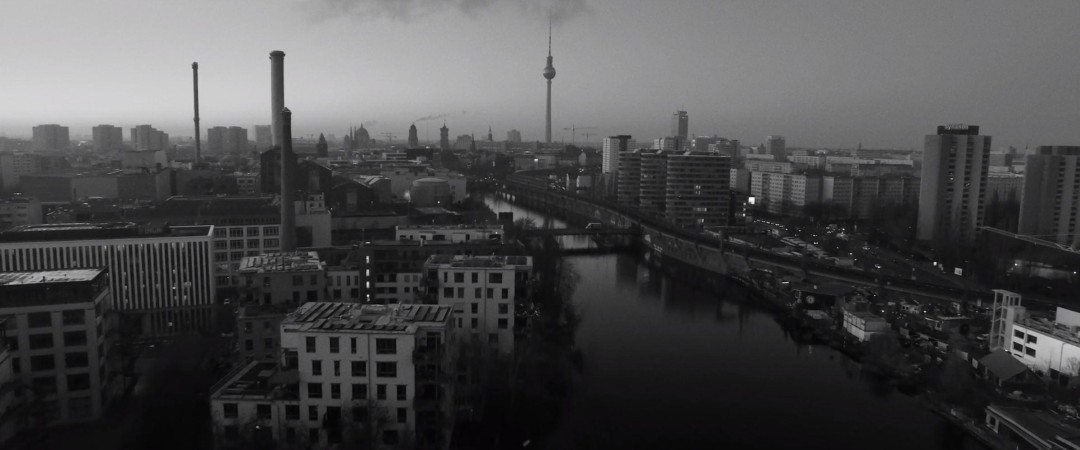There is more to Berlin that money and greed
The speculative development of the last twenty years has turned the urban and socialfabric of the German capital on its head. In his film “The Woddafucka Thing”, Gianluca Vallero, a journalist and filmmaker who has lived in Berlin for over thirty years, paints a picture of a city caught between its past and present.
A city that in the reunified Germany of the early 1990s could still be described asanarchistic, revolutionary and alternative is in the process of losing that identity. Instead, Berlin is surrendering to an unbridled capitalism that is changing not only the face of thecity but also, unfortunately, its soul. The privatisation of large swathes of public propertyand municipal enterprises began after the fall of the Berlin Wall and was pursued on amassive scale in the early 2000s by a wholly left-wing (!) coalition, leading to rampantproperty speculation. Large property companies bought up buildings en masse, well andruly embedding themselves in what was then one of Europe’s cheapest capital cities andinitiating an inexorable process of gentrification by driving up the price of rents, goods andservices.
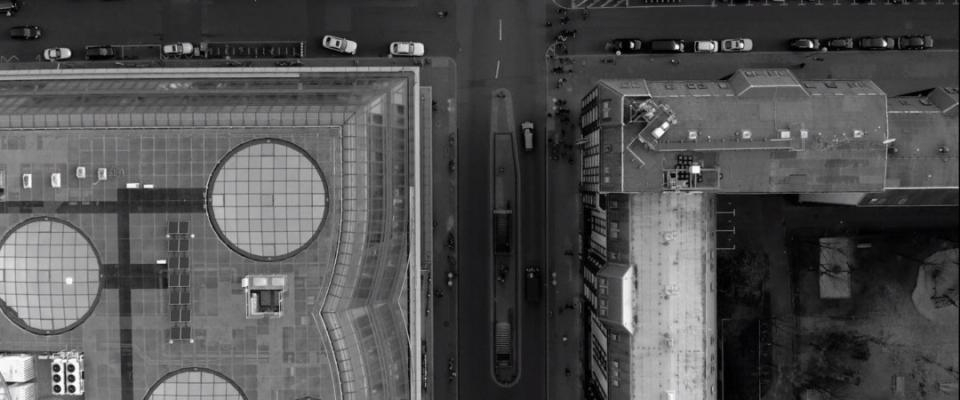
Over the last twenty years, this process has permanently altered Berlin’s urban and socialstructures and forced whole sections of the population to move out of the city centre andinto the less appealing outskirts of the city. The consequences of this transition have always interested me, both as a journalist and as a filmmaker. My years spent working asa radio reporter brought me into contact with plenty of people who had had a lot of troubleintegrating into Berlin’s complex socio-economic landscape: their experiences varied between tragic, funny, surreal and bewildering. It would be a shame only to read aboutheir experiences or hear about them in radio reports. This is why I felt the need and the desire to make films and bring some of the extraordinary characters I met during those years to the screen. The city seemed to me the ideal setting in which to lend a newdimension to these human destinies. For the cinematic image has something unique overevery other narrative form: it “fixes time without any mediation”, as Andrei Tarkovsky put itin his directing masterclasses and in “Sculpting in Time”. This, for him, is what gets peopleinto cinemas: the search for time – be it wasted, lost or not yet reached.
It was with the aim of capturing time in its socio-historical context and replicating it viaimages that I set out to make my new film “The Woddafucka Thing”.My protagonists are mostly foreigners or people with a migratory background who aresometimes a little lost in Berlin. They deal with the difficulties of everyday life head on andwith plenty of imagination – the only arm they have at their disposal.
They are naive dreamers who are fighting to survive and trying to escape bourgeois conformity and the oppressive dictates of the market economy. Sweety, Gino and Ninja, these perpetual outsiders, are down on their luck, with a little of the spirit of Robin Hood coursing through their veins. They, too, are victims of property speculation and experience directly theeffects of the ruthless cynicism that prevails in the current housing market.
Since the turn of the millennium, the German capital has been imbued with a mythicalstatus and marketed by the media as a kind of Toyland, but also as an investors’ paradise, as a place to make a quick buck. And indeed that’s what it was for a while. Theuncomfortable truth is that Berlin has turned into a city where poorly paid jobs cannot compete with the rising cost of living. It is an increasingly exhausting and bureaucratic metropolis where flats are only to be had at outrageous prices, or not to be had at all for those with no contacts.
The price of a room in a shared flat is between €500 und €700 a month, while the rent for commercial spaces has almost tripled in the space of a few years. Those who arrive in Berlin speaking very little German, having no particular vocation and not belonging to the ranks of the highly sought-after professionals of the trendy digital scene must make ends meet by working illegally – or at best for minimum wage. And it is sometimes better to remain invisible to the state and thereby save on taxes as well as health insurance and pension fund contributions. The only other option is to apply for social welfare paymentsand literally think twice about every cent one spends.
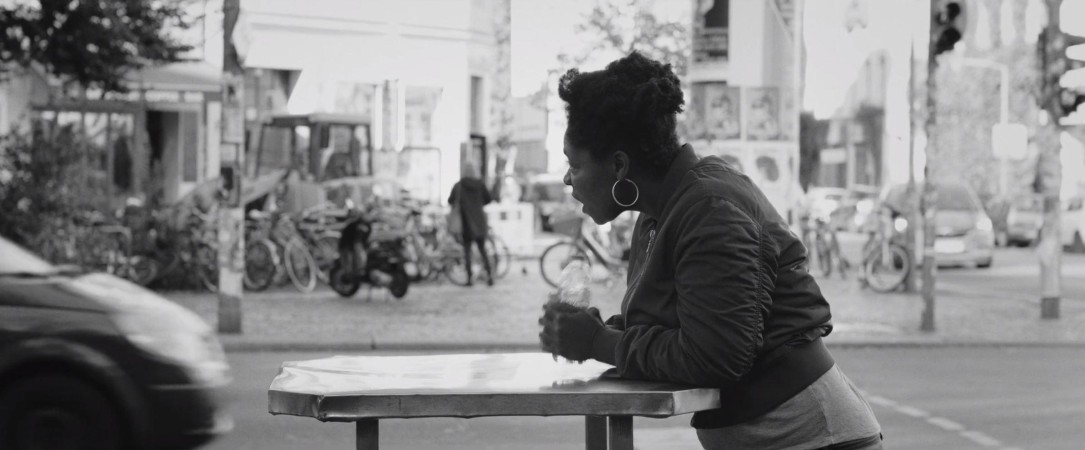
The people portrayed in “The Woddafucka Thing” operate within a seething urban underground that continues to expand outwards even as they flounder about in it, up to their necks in trouble. They are suffering the consequences of a system that they don’t fit into and that they have no means of controlling. As clueless as they are, they do not have the option of giving up. They have bags of energy and cling to the eternal hope that soone or later their luck might change. If they can get something out of a situation, then they’lllook into it – with criminal instincts, to be sure, but always with a certain respect.
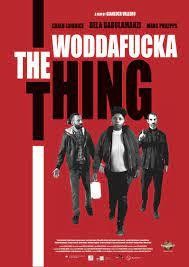 But whatennobles and redeems them most is their humanity, the conviction that each personalways brings something to the table, even if it’s just a feeling of gratitude, or maybe even an offer of friendship.
But whatennobles and redeems them most is their humanity, the conviction that each personalways brings something to the table, even if it’s just a feeling of gratitude, or maybe even an offer of friendship.
These people are the ones who, in my opinion, embody the rebellious soul of the Berlin of old that is slowly disappearing. Those multicultural artists, bricklayers, intellectuals, waiters and bohemians who had been making their way to Berlin from the 1960s right up into thenew millennium. They wanted to remake their lives – and not just survive. They were also responsible for shaking up a rather rigid German society. “The Woddafucka Thing” I wanted to say about Berlin, in black and white, full of “wasted”,“lost” or “not yet reached” time, is nothing other than that. Everything else is just cinema.
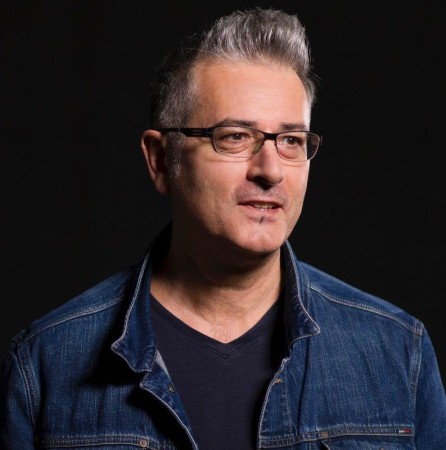 Gianluca Vallero is a director and voice-over artist for film antelevision. Between 1992 and 2003 he worked as a journalist, publishing articles in Italian and Swiss newspapers, including Il Manifesto and Il Giornale del Popolo, and broadcasting segments on public radio stations in Germany. In 2003 he worked onthe film “The Keys to the House” as assistant director to Gianni Amelio. He hasmade several short films and a documentary with his company Finimondo Productions. “The Woddafucka Thing” is his first feature film. At its world premiere at Filmfest Bremen 2023, it won the Jury Award for Best German-Language Film.
Gianluca Vallero is a director and voice-over artist for film antelevision. Between 1992 and 2003 he worked as a journalist, publishing articles in Italian and Swiss newspapers, including Il Manifesto and Il Giornale del Popolo, and broadcasting segments on public radio stations in Germany. In 2003 he worked onthe film “The Keys to the House” as assistant director to Gianni Amelio. He hasmade several short films and a documentary with his company Finimondo Productions. “The Woddafucka Thing” is his first feature film. At its world premiere at Filmfest Bremen 2023, it won the Jury Award for Best German-Language Film.




